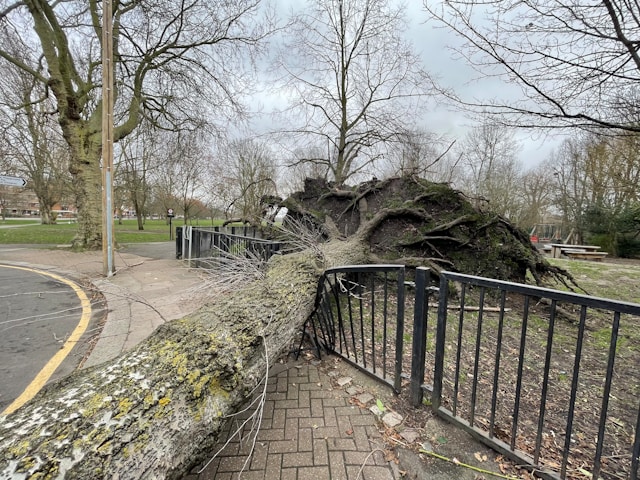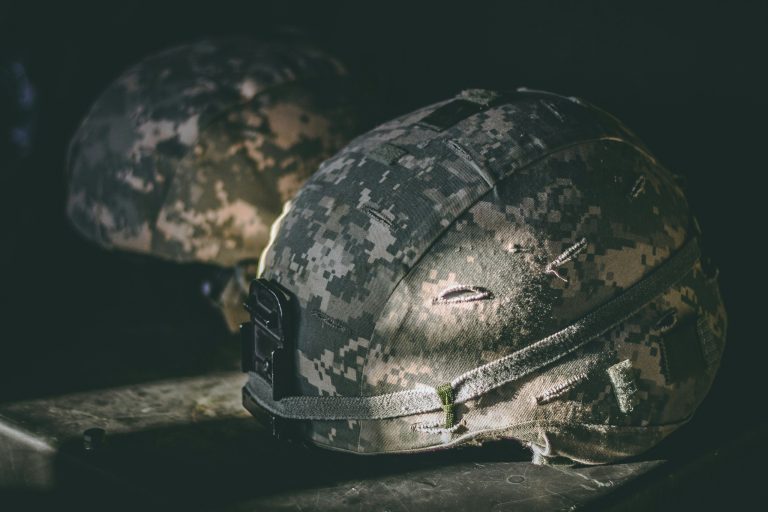
If you want the opportunity to serve your community and help people to feel safe and secure as they go about their business, working as a public safety officer could be the perfect career choice for you. Public safety officers work in a variety of different contexts, sometimes focusing on particular groups of vulnerable people, looking after government officials or patrolling public events, but they always have to look after others at the center of what they do. This article will help you understand more about what their roles involve and how you could join their ranks.
The qualities you will need
As their primary role is to protect others, personal safety officers need to be ready to put other people’s needs before their own. They must be attentive and quick to react in the event of trouble but know how to control their emotions so that they can stick to their training and make good decisions under pressure. Because a lot of their work involves picking up on problems and intervening early, before they become serious, they need to be good at developing positive relationships with all sorts of different people and be good listeners who easily invite confidence. PSOs (public safety officers) deal with many different situations and may need to contain a crisis until police or paramedics can get there, so cannot be prejudiced or squeamish and need to be able to stay calm whatever happens. The best PSOs have a natural talent for calming other people down.
It takes a lot of physical and emotional energy to be a good public safety officer. You will need to be highly motivated so that you do not get distracted when nothing seems to be happening and do not get overwhelmed when lots of things are happening at once. You will need to be a good problem solver with the ability to assess situations quickly and accurately and be well organized so that you are able to make notes and file reports in a timely manner without forgetting anything. You will also need to be physically fit for a job that means spending a lot of time on your feet and may sometimes require you to chase people.
The skills you will need
Along with the above qualities, you will need some specific skills in order to do your job well. You will need to be trained in the use of whatever weapons you are asked to carry, which could be anything from a baton to a gun. You will also need to be able to use specialized equipment appropriate to the role you choose — for instance, PSOs working with fire departments need to know how to use breathing equipment.
Although not all PSO roles require you to be able to drive, it is a major advantage, especially if you plan to work in a rural area where it will help you to respond quickly. If you are going to be driving as part of your job, you will need a clean license with no priors. In some situations — for instance, if you are going to be working in an area where ice routinely makes the roads dangerous in winter — advanced driving certification is useful, and without it you will need to be able to persuade potential employers that your skills are up to the job.
Although many public safety officers come from a military background, it is not necessary to have combat training, what is useful — and required in many cases — is knowing how to restrain people safely in accordance with the law. You will also need to learn de-escalation techniques to increase your chance of being able to manage situations so that physical restraint is not necessary.
The education you will need
Providing you have a high school diploma or GED, it is technically possible to become a public safety officer, but in order to have a good chance of competing against other applicants for the best opportunities it is advisable to study further. Getting a master’s degree in law enforcement will put you in a much stronger position and give you a much more in-depth understanding of how to do the job well, benefiting you directly and the people you serve. If you study online, it is easy to fit it around a job or domestic commitments, or even around other aspects of your skill-building journey.
Many PSOs choose to take additional, shorter courses as they progress through their careers in order to develop their knowledge of laws and regulations and improve their understanding of social issues relevant to the contexts in which they work. In almost all PSO roles you will be working as part of a team, so it is a good idea to talk to your colleagues on the ground and ask them what they have found most useful.
Training and certification
No matter how well qualified you are, before you can work as a public safety officer you will need to be certified. Your educational institution will usually be able to arrange this for you, but some specialist types of PSO work, such as patrolling wildlife refuges, require applicants to take additional tests in order to confirm that they have the requisite knowledge, and their skills are up to date. If you plan to work in a context that requires you to use medical skills beyond basic first aid, you will need state-specific certification, which means that if you move between states you will have to apply for a new certificate before you can begin work. In most cases, however, this is a very straightforward process which can even be initiated before you move, if you know your new address.
Even with the best education, it is impossible to work as a public safety officer if you are not physically up to the job. Although established officers who later become disabled can sometimes be moved into closely related roles that are less demanding, all new PSOs are expected to demonstrate a basic level of physical fitness, and those working with the police or fire department need to undergo training designed to build up their strength and energy levels. Naturally, you can give yourself an advantage where this is concerned by starting to do fitness and weight training while you are still studying, so that you will find it easier to keep up once the training starts.
In many public safety officer roles, it is also necessary to be CPR certified. There are lots of ways that you can get this training for free or at low cost as a private citizen, even before you begin your professional training, and it is worth doing, because you never know when it might give you the opportunity to save a life. In jobs where it is not a strict requirement, even in other fields, it can still give you an edge over the competition.
Your career options
There are lots of different contexts in which fully trained and qualified public safety officers may choose to work, with most developing a specialty over time. You could end up working with the police, fire service or medics, but many other smaller organizations also hire PSOs. You could provide security for a gated community, a college campus, a large public institution such as a museum or a private one such as a bank. You could work at a hospital, looking out for the general safety of patients and protecting them from threats, or at a psychiatric institution where part of your duty is to make sure that patients do not wander off, as well as managing any aggressive or self-destructive behavior in a way that minimizes the risk of them coming to harm.
PSOs also work for large government departments, providing a variety of different services. For instance, they may look after displaced people following natural disasters, making sure that the places where they shelter are safe and that they know how to access the basic support they need. They may manage areas where people and wild animals frequently come into contact, or they may ensure crowd safety at public celebrations.
The duties you will be expected to perform
Public safety officers have two main ways of going about their job: making regular patrols and responding to calls. On patrol, it is important to stay alert and try to look at everything as if you are seeing it for the first time, even when your route has become familiar. With calls, what matters most is responding quickly, and being able to prioritize effectively if you receive more than one at a time. You will need to keep clear records of what you see and report anything suspicious to the appropriate authorities. You will need to be prepared to investigate suspicious incidents in the first instance, collecting evidence in a careful way that preserves its integrity and keeps it safe, but step back and let police do their work when they arrive, cooperating as instructed.
Much of the work of a PSO revolves around keeping order. This can involve stewarding work at public events, directing traffic, or whatever similar tasks you may find yourself assigned to. It will be your job to assist police officers in dealing with both civil and criminal issues, and when no officers are present, you may need to take witness statements and talk to crime victims. You may be asked to administer first aid at crime scenes and help keep people calm, whether they were directly involved or are simply curious members of the general public. You should also be ready to step in as a first aid provider when necessary in order to help members of the community, whether they just need treatment for minor injuries or need to be kept stable until paramedics can arrive.
Staying up to date
Best practice in this type of role is constantly being revised in response to changing legislation and ongoing research, so in order to guarantee that you can do your job well, you will need to be willing to adapt accordingly and take further training courses as required. It helps if you have the kind of enthusiasm for your job that encourages you to keep researching and being proactive about change. Often, new techniques can end up making your job a lot easier.
In many cases, employers take the lead in supplying this type of support, and staying on top of changes can be as simple as committing to attend the occasional training day or evening class. These also present good networking opportunities where you can learn from your peers and potentially hear about new opportunities to move your career forward.
Why it is worth it
Studies have shown again and again that there are no jobs as satisfying as those which provide the opportunity to help other people. You will return home from work each day knowing that you have done something really useful, and you will enjoy making friends in the community that you serve. Every day will offer something a little different, so you will never reach a point where you feel you have seen it all, and you will acquire some great stories with which to entertain friends and families.
Public safety officers earn good wages and get good benefits. This kind of role offers a route into working for government and can lead to exciting promotional opportunities if you are interested in working in the field of criminal investigation. Because PSOs are needed everywhere, it is also very easy to move around in this role, and once you have good references you will find it easy to secure new jobs. This gives you a lot more control over your career and your work/life balance than is the case in most professions.
Helping to keep communities safe enables other people to get on with their lives. It contributes to building a stronger society. It is your chance to do something heroic and make your family proud.






